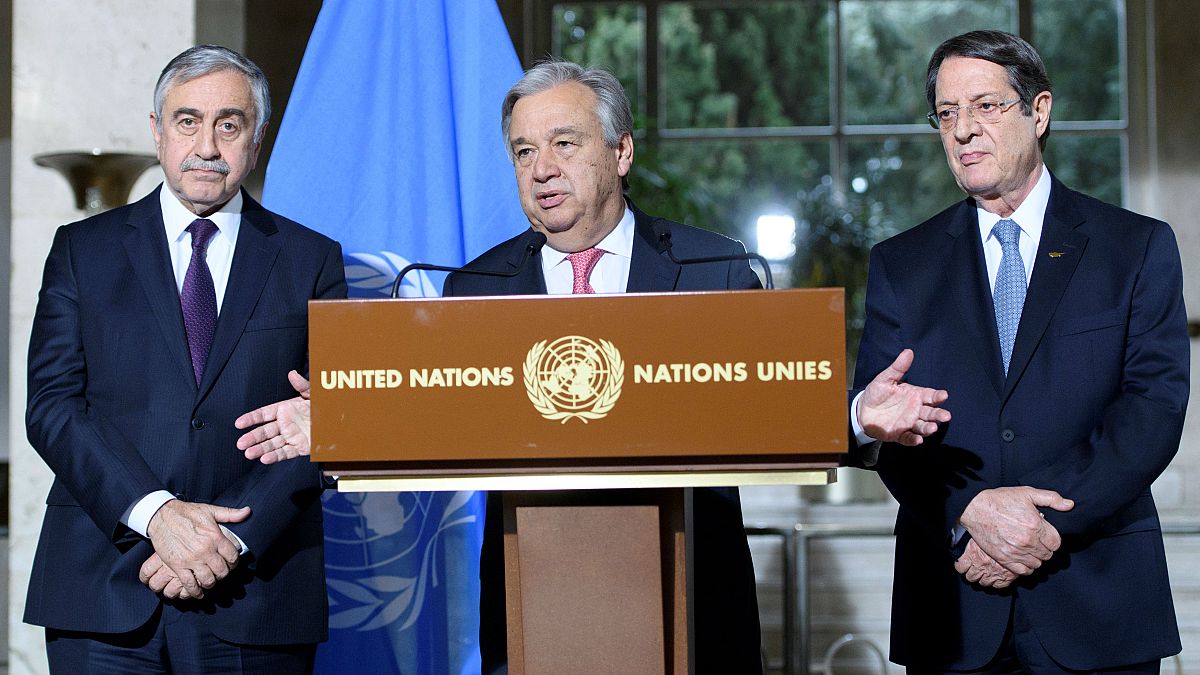By Nikos Christodoulides, Cyprus government spokesman The seemingly intractable Cyprus problem has been dubbed the ‘graveyard of diplomats’, an unforgiving label alluding to the failed attempts of the
By Nikos Christodoulides, Cyprus government spokesman
The seemingly intractable Cyprus problem has been dubbed the ‘graveyard of diplomats’, an unforgiving label alluding to the failed attempts of the international community over the past decades to successfully assemble the puzzle that is, admittedly, the Cyprus problem.
And yet, the latest efforts in the ongoing negotiations for a comprehensive settlement have reignited hopes that a reunited, federal Cyprus could be on the horizon.
Could Cyprus, an EU member state, at the crossroads of Europe emerge as a beacon of peace and stability in a region, and indeed a world, fraught with conflict?
The past 20 months of negotiations between President Anastasiades and Mr. Akinci have been laborious, intensive and challenging. They have called for genuine political commitment, creativity and courage.
Discussions of the four of the six chapters – Governance and Power-Sharing, Property, Economy, and European Union – have taken place inter-dependently for the first time, as called for in the Joint Declaration of 11 February 2014. This new negotiating effort has yielded positive results in these four chapters, with noteworthy progress on a number of important issues.
And yet, despite the progress it would be painting an incomplete picture to turn a blind eye to the significant distance that still separates the two sides on some vital aspects of these chapters.
At the same time, the chapters of territorial adjustments and security and guarantees, the most crucial and sensitive chapters, are at the heart of the remaining challenges in the negotiations. These are the chapters that will ultimately tilt the balance and define whether a solution can in fact be reached.
During the negotiations of last week in Geneva the remaining differences on the four chapters were tackled with the aim of reaching further convergences. A day before the Conference of Cyprus maps for territorial adjustments were submitted by both sides.
Despite the fact that this was a historic development, a positive first step, which cannot be undermined, the Turkish Cypriot proposal falls short of addressing the aspirations of the Greek Cypriot community for just and fair territorial adjustments.
The Conference of Cyprus of 12 January, with the participation of Turkey, one of the three guarantor powers and an occupation force in Cyprus, was the stepping stone to start discussions on security and guarantees. It has paved the way for further technical deliberations, which are expected to culminate to further political discussions, with the participation of Turkey, as well as the other guarantor powers, the Republic of Cyprus, the EU and the two communities in the island.
In the maze that the Cyprus Problem often resembles it is not hard to lose sight of the striking paradox that lies at its core. What place do security and guarantees have in an EU member state?
The anachronistic Treaty of Guarantee, which dates back to 1960, is in fact the source of many of the problems still faced in Cyprus today. Indeed, as history tells us, and as the over 40 year division somberly demonstrate, the Treaty has failed miserably at serving the purpose it was set to achieve, or contribute to the smooth functioning of the Republic.
Turkey’s military invasion of Cyprus in 1974, under the false pretense of Turkey stepping in to protect the Turkish Cypriot community, and the continuing occupation and division of the island and its people are sore wounds, not only for the Greek Cypriots.
No actor involved in the current negotiating effort can ignore the fact that the Annan Plan of 2004 was rejected by 76% of the Greek Cypriots precisely because it failed to address legitimate concerns, particularly as regards the continuation of the presence of foreign troops on the island and the existence of the right of intervention by the guarantor powers.
We must never lose sight of the fact that any final plan will be put to the people in a referendum, and failing to address the legitimate concerns of both sides will lead to a rejection of the plan.
Cyprus is, and will continue to be an EU member state post reunification. A viable, functioning, modern European state is in no need of guarantees from a third country. The best guarantee for security of any country is a well-functioning state, and for a member state of the EU the best guarantee is membership itself.
In fact, President Anastasiades has stressed that constitutional provisions of the settlement, on which convergences have been achieved, effectively strengthen the sense of security of all citizens and constitute the best guarantee for the creation of conditions of peace, stability and prosperity.
Political equality, effective participation in the federal government, effective deadlock-resolving mechanisms, the guarantee of all the rights enjoyed under the EU treaties, are some of the provisions that will sufficiently safeguard the security of united Cyprus. These are parameters that render the maintenance of the 1960 system of guarantees obsolete.
Cyprus can be a diplomatic success, if only all parties demonstrate the same degree of political commitment. The Greek Cypriot side will remain firmly committed to reaching a comprehensive settlement for as long as division and occupation continue.
Cypriots deserve a chance at a reunited, viable European homeland in which they will coexist peacefully, without third country interventions. A solution to the Cyprus problem will be catalytic for the country itself but also beyond: it will lead to normalization of relations with Turkey, it will pave the way for regional collaboration and prosperity and can invigorate EU-Turkey relations.
By Nikos Christodoulides, Cyprus government spokesman
The views expressed in opinion articles published on euronews do not represent our editorial position
